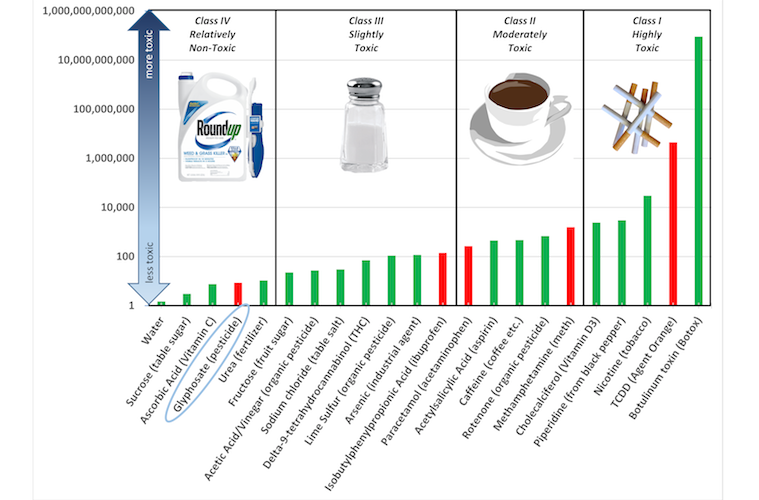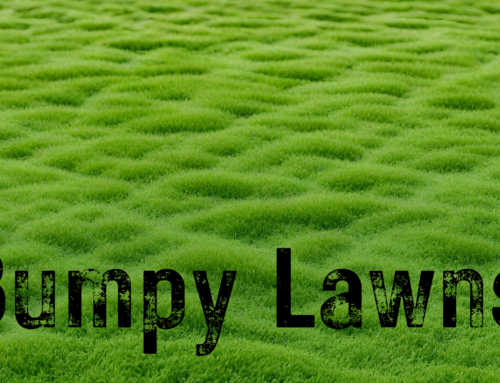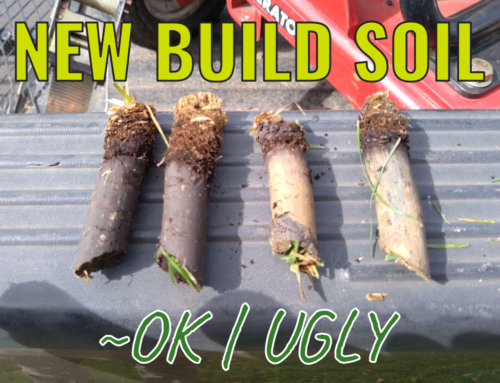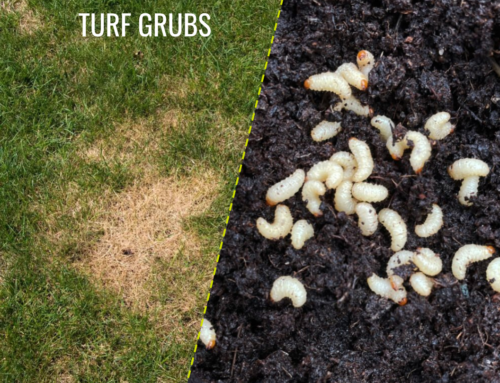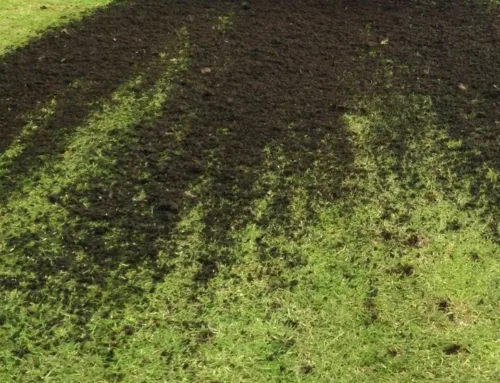Quick Summary
Granular products have ZERO toxicity; They are 100% safe
- They consist mostly of Nitrogen, Potassium and clay filler. The air we breath is 78% Nitrogen.
Liquid products have extremely low toxicity when applied to lawns in diluted form and are 100% safe when dry
- Our products are diluted with water between 1:50 and 1:200 before reaching your lawn. With our application techniques, the lawns are typically dry within minutes of us leaving your property.
- We recommend staying off until dry simply because we don’t want any two or four legged family to track the smell of our product from their feet on to the home’s carpet.
- A pet or person would have to eat 1/8 to 1/4 of an acre of grass (about 3 to 6 volleyball courts), right after application, to experience critical toxicity symptoms with the ‘harshest’ product that ProLawns uses… Unfortunately there’s been no study on if eating that much grass is toxic: Our liquid treatment or not, we don’t recommend eating that much grass.
The signs we leave in our lawns have some scary wording on them
- This exact wording is mandated by State Statute and hasn’t been changed since the 1970’s. However, the products used today are exponentially safer and more regulated than what was used in the 1970’s.
A Great External FAQ Resource:
PESTICIDES ALL AROUND US
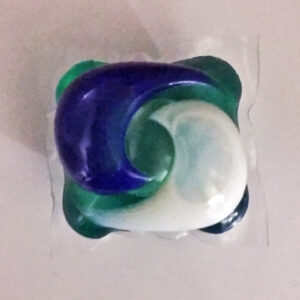
The word pesticide itself has a bad stigma attached to it. Many people confuse pesticides for poisons.
A pest is anything that’s “unwanted” for any reason and a pesticide is anything that get’s rid of pests.
Antibacterial soap, dishwasher soap and laundry detergent are technically toxic pesticides because they kill germs (germicides); however, when used correctly, these thing are obviously very safe. The same goes for products that are used to protect plants. Just as soap controls harmful pathogens that humans encounter, lawn care products control weeds, insects, and fungi that damage plants.
The regulations, testing and certifications are strict for the products we use on your property. First the EPA tests it at the national level (The United States has one of the strictest registration processes in the world), then our state also tests and approves it’s safety for use. No product that causes any cancer in any mammal or pollutes the environment can be applied to lawns.
LAWN CARE AND PEOPLE

External Resource: Pesticides and Children (National Pesticide Information Center) | Cliff notes: Safe when dry
Rash, gastrointestinal ulcerations, abdominal pain, upset stomach, heartburn, drowsiness, headache, cramping, nausea, gastritis, and bleeding…
Are you thinking these are side effects of lawn care products?
NOPE; These are the common side effects of Bayer Aspirin
Agricultural Health Study
https://aghealth.nih.gov/news/index.html
Executive Quick Summary: Synthetic pesticides are not harmful to people
The AHS was designed to study the relationship between chemical exposures and health. Between 1993 and 1997, 52,394 licensed private pesticide applicators from Iowa and North Carolina enrolled, as did 32,345 of their spouses.
Private pesticide applicators are studied because their exposure to concentrated and diluted pesticides is exponentially more than that of the general population. Private pesticide applicators, as a generalization, are much more likely to cut safety corners to “get the crop up”. Private pesticide applicators are not required to test, complete continuing education, or maintain certification that Commercial Pesticide Applicators are (ProLawns specialists are Commercial Pesticide Applicators).
Findings:
-
Private pesticide applicators have lower rates of many disease compared to the rest of the population, perhaps because they are less likely to smoke and are more physically active.
-
Regular exposure (applicators) of organic pesticides in the organophosphate insecticides & organochlorine chemicals categories are linked to developing some cancers, including prostate cancer, Parkinson’s disease, allergic asthma and may increase the risk of diabetes and thyroid disease.
-
ProLawns does NOT use these
-
LAWN CARE AND PETS

External Resource: Pesticide Use Around Pets (National Pesticide Information Center) | Cliff notes: Safe when dry
Here are some facts we’ve gathered from our 40+ years of experience:
-
ProLawns has never had a single issue with any pet related sickness since starting in 1980.
-
The weed control products we use are engineered to control weeds. They are chemically designed to only effect specific plant biology (how they don’t kill the grass but do kill the weeds). The ingredients do not effect mammal biology. They’re great at controlling specific plants; not great at hurting animals.
-
The FDA certifies certain products we use to be grazed (eaten) immediately after application by beef cattle destine for our grocery stores. All of our products share the same active ingredients.
Quick chat with a Veterinarian
Q: Do you get people in who are concerned that “pesticides” made their dog sick?
A: Yes. People will bring their pet in or call associated with suspicions that something that a lawn care company applied has made their pet sick. In reality, most of the cases of seizures or cancers and other illnesses we see are from hereditary genetics of specific breeds and things that typically happen in a pets golden years. I do not believe that the lawn care companies and what is being applied in this day and age are responsible for any illnesses. I see it as media hype and panic spread by anti-chemical groups. Actually, more frequently than lawn care pesticide concerns, I’ll get criticized by people who believe our flea and tick and heart worm medications are poisoning their animals; because of an article they found online.
When there are still doubts from the pet owner or if someone needs conclusive proof that it was or wasn’t chemical poisoning they can call the ASPCA animal poison control division and for $60 they will have a toxicologist do a full blood workup to determine exactly what chemical compounds are in the dog. They usually do this when it is suspected the animal may have ingested rat or mouse poison. The toxicologist will submit a report that the vet can access and determine if any of the compounds in the blood are related to products used on lawns, etc.
Here are 2 numbers you can use to get a toxicology report. ASPCA poison control. (888) 426-4435. Pet Poison Helpline (800) 213-6680.
Source:
University of Minnesota Extension
Be Pesticide Smart E-News UMN Extension PSEE (Pesticide Safety and Environmental Education)
March 1, 2023
Pesticides on foods: are they safe to eat?
Pesticides such as insecticides, herbicides and fungicides, when used according to label requirements, protect crops from insects, diseases and weeds that are damaging to food supplies. There is an abundance of information available on the internet about pesticides on foods, but not all of what can be found is based on science and research. How can one find out if the foods we eat are safe?
Monitoring pesticide residues on foods
Under the Food Quality Protection Act (FQPA), the Environmental Protection Agency (EPA) must ensure that all pesticides used on food in the United States meet FQPA’s stringent safety standard.
The US Department of Agriculture (USDA) has a national pesticide residue monitoring program called the Pesticide Data Program (PDP). vegetables at a market
The PDP maintains a comprehensive database that includes sampling, testing, and reporting of pesticide residues on agricultural commodities in the U.S. food supply with an emphasis on foods highly consumed by infants and children.
When there is detection and presence of pesticide residues on foods does not mean that they are unsafe. The EPA is confident that the vegetables and fruits we eat are safer than ever before. The USDA’s PDP program detects and reports residues at levels far lower than those considered health risks.
LAWN CARE AND THE ENVIRONMENT

“Don’t your products end up in our lakes, rivers and drinking water?”
Year round lawn care and stagnant water systems necessitate that Florida lead the world on testing related to water pollution. A University of Florida study; funded, monitored and controlled by the Florida Department of Environmental Protection found that “Grass has a tremendous ability to take up virtually all the fertilizer that we apply to it”. Fertilizer does not end up in our waterways.
As far as drinking water goes, Minnesota is actually top in the nation for testing on this. Ground water monitoring has been done in MN since 1985. The only common pesticides found are agriculture related, in the most rural parts of MN and at low quantities
“Using fertilizer is better than not for keeping phosphorous out of our waterways” – Jon Trappe – University of Minnesota Turfgrass Field Day 9/27/23. (Addressing the misconception that fertilizing turf has a negative effect on surface or ground water)
Commercial Pesticide Applicators (ProLawns employees) take two or more closed book exams to first get their license. They are then required to take annual continuing education on the subjects of pesticide safety, environmental effects, and best application practices to maintain their certification.
ORGANIC PRODUCTS

Organic DOES NOT mean “safe”. This is a very unfortunate misconception.
Reading the Ag Health Study information in the “Lawn Care and People” section above and reviewing the “Toxicity Comparison Chart” below shows that organic products can be significantly more toxic than synthetic products and are directly linked to causing cancer, diseases, and other conditions.
Organic products often skip the EPA certification and testing due to being in a gray area of classification. They are not tested or certified to “not cause any cancer in any mammal or pollute the environment” like synthetic products are.
We at ProLawns have searched and will continue searching for an organic option that is actually effective and have yet to find one. We won’t waste our clients money especially since our current methods and products are so safe and many organic options are significantly more harmful.
TOXICITY COMPARISON CHART
Note where the “harshest” (most villainized) synthetic lawn care product, Roundup, is on the chart vs common organic pesticides and medicine.
